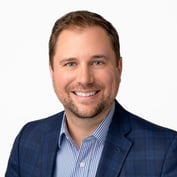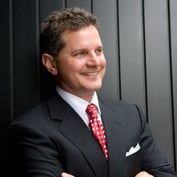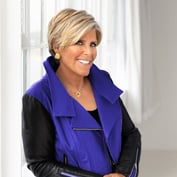What You Need to Know
- The market has priced in a downturn that may not happen, T. Rowe Price's David Giroux says.
- It's a tough time for 60-40 portfolios, according to BlackRock strategist Kate Moore.
- T. Rowe has lowered cash holdings this year while BlackRock has added significantly to its cash position.
As inflation, war in Ukraine and the COVID pandemic stir economic and market uncertainty, investment managers are looking for opportunity, safety and alternative assets.
Kate Moore, managing director and head of thematic strategy at BlackRock, and David Giroux, portfolio manager at T. Rowe Price, shared their views and market approaches at the Morningstar Investment Conference this week.
While they agreed the market may be overly pessimistic about recession prospects, they’ve pursued contrasting portfolio strategies. Here are some of their insights, offered in a conference session and a separate talk with reporters.
Recession Fears Overdone?
Data suggest a recession is unlikely in the next four quarters, according to BlackRock’s Moore.
“BlackRock is squarely in the no-recession-at-this-moment camp,” even with anticipated pressures from inflation, higher interest rates and threats to growth from geopolitical disruptions in Ukraine and China, she said.
“We feel very encouraged, frankly, by the health of the consumer balance sheet, the health of the corporate balance sheet, and think we’re going to be able to weather the storm,” said Moore.
Macroeconomic data show a slowing economic growth trajectory but, barring an exogenous shock, a recession doesn’t appear imminent, she said.
The market has gotten too pessimistic about a significant economic contraction, she said. Moore expressed concern over a potential “feedback loop” between negative headlines, negative sentiment, a change in consumer or corporate behavior “and that feeding through into the real economy.”
Economic uncertainty, high inflation and geopolitical events are leading many corporate leaders to ask themselves whether they should be spending now, said Moore, who predicted at least a slight pause in corporate planning, “and that won’t be great for the cycle.”
People are extrapolating out CEO comments to apply to an industry or market, but “the plural of anecdote is not data,” she said.
Even if the U.S. economy does enter into a modest recession, the market appears to have accounted for it already, T. Rowe’s Giroux noted.
“Stocks are pricing in a recession that may or may not show up,” he said. If a recession doesn’t materialize, valuations will return to normal as earnings grow at a healthy pace, he said.
“The macroeconomic consensus is often wrong, it may be wrong more than it’s right,” Giroux said. “Recessions are rare, calling for recessions is a constant.”
Bank reserves are in good shape, Giroux noted. He doesn’t see a massive recession looming, and if a downturn does come, he expects it will be mild.
Nor does Giroux expect inflation to remain at 8.5% long term, although he predicted it will be slightly higher than pre-pandemic levels, likely at 2.5% to 3.5% after 2023. Working-age population growth will slow from 2022 to 2030, putting upward pressure on wages, but productivity should improve in the next five to 10 years, he said.
Challenging Time for 60-40 Investors
Today’s market environment is challenging for the traditional 60%-40% stock and bond portfolio, with neither side working as the perfect hedge, Moore noted.
BlackRock believes managers need to be creative about building a multi-asset portfolio, she said, noting the firm has invested in private, pre-IPO companies, commodities and derivatives, among other moves.
“We’re really trying to balance out across the suite of asset classes” and not rely on “the set-it-and-forget it” strategy, she said.
Differing Strategies
T. Rowe Price and BlackRock both have made significant portfolio changes this year, although their strategies differ.








 May 18, 2022 at 11:15 AM
May 18, 2022 at 11:15 AM












 Copyright © 2024 ALM Global, LLC. All Rights Reserved.
Copyright © 2024 ALM Global, LLC. All Rights Reserved.